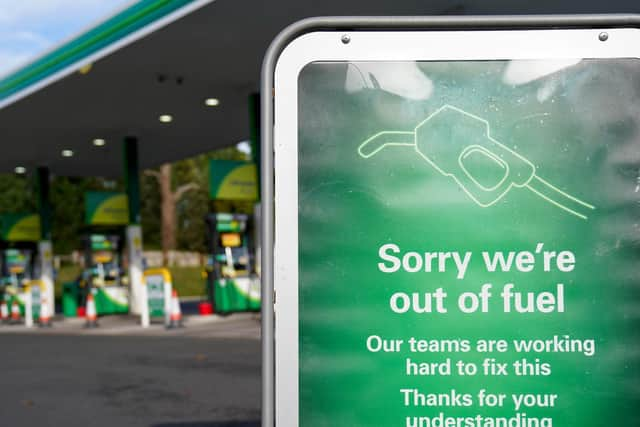Government must act quickly to solve supply crisis if we are to see an economic recovery - Beckie Hart
Escalating gas prices, a shortage of CO2 and cancelled fuel deliveries have seen people panic-buying petrol and retail industry warnings of potential food shortages, as well as widespread fears of substantial hikes to household bills.
It wasn’t supposed to be like this. This summer was expected to represent a watershed as we emerged from Covid restrictions to move full steam ahead towards recovery. Yet instead, business has effectively swapped one set of crippling difficulties for another – and once again, bold and urgent action is needed to restore the confidence and stability which businesses across our region crave.
Advertisement
Hide AdAdvertisement
Hide AdThat is why the CBI has called for Government to take a more urgent and active approach to tackling these issues. Government moved with commendable haste and authority during the pandemic, when scientists on the Scientific Advisory Group for Emergencies (SAGE) worked alongside Ministers to designing rapid-fire solutions, turning live insight into targeted actions.


We now need more of the same. The creation of a new taskforce aimed at curbing driver shortages, supply chain disruption and wider labour concerns is a good start but does not go far enough.
The time has come to elevate both the nature and power of this group, creating a ‘COBR-level’ Government & Business Taskforce with the remit of identifying and actioning policy responses to immediately secure the economic recovery in all parts of the country.
There is no time to delay. In every meeting I’ve had in the last few days and at the Yorkshire and Humber Regional Council last week our members have told us that sharp cost increases for materials, rocketing energy prices and component shortages are stretching them to breaking point. And concerns over labour shortages are at a historic high – more than three quarters (76 per cent) of respondents to a recent CBI survey said access to labour is a threat to the UK’s labour market competitiveness.
Advertisement
Hide AdAdvertisement
Hide AdRecord numbers of consumer services firms expect labour shortages to hold back both investment and business expansion in the year ahead.


The upshot of all this is that it has triggered a worrying shift in mindset for many businesses. Whereas the majority had been eyeing recovery and growth, they are now focused instead on simply coping. If this is allowed to continue, it will represent a major threat to our recovery – and our region’s long-term prospects.
It is therefore imperative that Government steps up its response to a new level of both speed and boldness. The Prime Minister must empower the new taskforce to make rapid policy shifts and decisions to overcome the current shortages.
That should begin with giving business a seat at the table. Because while many of the challenges facing business today are global in nature, the solutions we need are local – and industry insight can be key to solving them.
Advertisement
Hide AdAdvertisement
Hide AdLong-term answers to labour and skills shortages include investing in skills, automation, pay and conditions. But none of these solve the problem quickly.
So, while Government is right to keep up the pressure on companies to adapt and not rely on immigration long-term, business can show that temporary visas issued via the Shortage Occupation List, like the one that’s been issued over the weekend to HGV drivers, are the only way to alleviate the disruption of shortages in weeks and months instead of years.
Getting this right is about more than coping with threats – it’s about building opportunity too. If we act now, we can be one of the fastest nations in the world to respond to this global surge in demand. And unblocking constraints can enable minds to again focus on other priorities: recovery and growth.